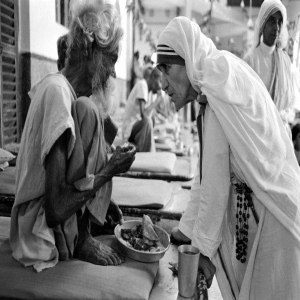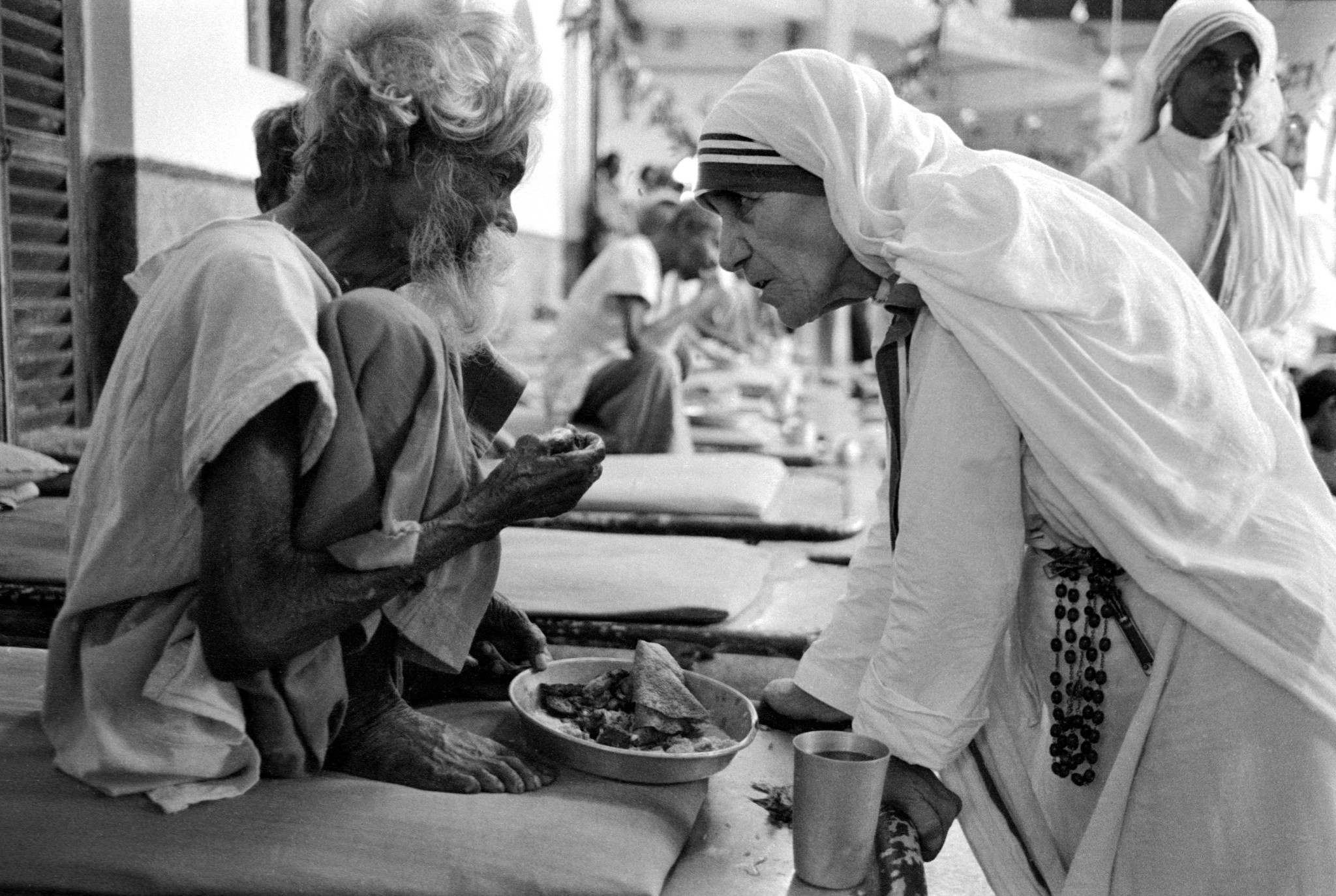
.jpg) Peter Fernandes
Peter Fernandes

Who wants to tie a towel? The contemporary society is driven by the culture of glamour and accolades. Everyone is rushing and pushing to achieve greatness and amass wealth at all costs. Parents push their children at a very young age to achieve greatness, perhaps not realising that they are robbing their children's childhood by getting them on a rat race. Standing first in class is all that matters. The corporate world is viciously promoting a culture of success and triumphalism, and true leadership is lost in corrupt politicians.
In a dire situation, the secular world looks at religion for guidance, but ironically, religious leaders are more confused today than ever before. We often hear from religious leaders, "We have to change with time to be relevant for the changing times." Divine teachings are timeless and objective.
During the holy week, the Catholic Church remembers and celebrates the core teachings of its master Jesus Christ, which are timeless. Holy Thursday is one of the most important days in the Christian liturgical calendar, marking the beginning of the Easter Triduum. It commemorates the Last Supper of Jesus Christ with his disciples.
One of the lesser-known yet deeply significant traditions associated with Holy Thursday is the act of tying a towel, often symbolising humility, service, and Christ's loving sacrifice. This ritual, particularly observed in some Christian communities, is a powerful reminder of Jesus' example of servitude and his call for believers to humble themselves in service to others.
It is said a man who wants to lead the orchestra must turn his back on the crowd. Therefore, the words of Jesus resonate today more than ever before: "Whoever wants to be great among you must be your servant." In no uncertain terms, Jesus' teachings turn the world upside down; it transforms culture, not being part of the secular culture.
Political leaders are elected by people to serve and work for the common good. Servant leadership is a philosophy built on the belief that the most effective leaders strive to serve others rather than accrue power or take control.
In India, where a great percentage of people are poor, there is a wonderful opportunity for servant leadership. Therefore, in a country like India, when millions are living under the poverty line, and millions of others are homeless and malnourished, how can a leader afford to wear a coat worth over ten lakhs, have a private plane worth lakhs of crores, and wear the most expensive accessories?
Most of our political leaders are corrupt and self-serving. However, in an unprecedented gesture, while elevating his Swachh Bharat pitch to his new height, PM Modi in 2019 washed the feet of five sanitary workers, including two women – hailing them as karma yogis – and then wiped them dry with a towel to express his gratitude for their service and lauded their role in maintaining cleanliness in Kumbh Mela Campus.
Tying a towel is not a one-time service but a lifetime. And it should not be difficult because this is a land of Rishis. Although the PM says, "…hum toh fakir aadmi hai jhola utha ke chal padenge," (I am a poor man; I will just pick up my bag and leave), it is just an eye wash to deceive the gullible people, and he has successfully done this for 'x' number of years.
If India only had servant leadership, the whole world would envy this nation because India has all the natural and human resources to make this a great nation. However, servant leadership is unnatural in this nation due to the prevalent caste system. Therefore, tying a towel is out of the question. It is not surprising that Jesus and his teachings, "I am among you as one who serves", are rejected in India. The persecution of Christians has increased exponentially in recent times for that very reason.
The towel represents both a literal and figurative act of service. By tying it around oneself, individuals symbolically prepare to serve and love others, just as Jesus did. For contemporary society, to tie a towel amounts to condescension, and it is frowned upon by the culture of triumphalism.
However, a woman named Agnes Gonxha Bojaxhiu, of Albanian descent truly tied the towel and served the poorest of the poor people on the streets of Calcutta. Her commitment to serving the needy and washing them to help them have a decent existence was a marvel. The towel, a humble everyday object, carries profound meaning in this context. When tied around the waist, it becomes a symbol of the servant-leader model that Christ taught. It reminds the faithful of the importance of humility, showing that leadership in Christ's Kingdom is not about dominance or status but about serving others with love and compassion.
More than in a secular world, servant leadership is desired in the religious world. The religious leaders are trying to catch up with the changing times and, in the process, have forgotten about tying the towel. Mother Teresa of Calcutta remains a shining example for all to emulate, especially for the religious leaders in India.
The world needs liberation from injustice, oppression, deception, and falsehood. The path to liberation is to embrace truth in humility and serve truth with justice and honour. Sadly, contemporary society has incorporated pride and arrogance as its hallmark, which leads to oppression, deception, falsehood and injustice. It enslaves humanity in a trap of its own making, glossed with triumph and honour.
Jesus embraced the path of humility and service to others to set humans free: "Know the truth, and the truth shall set you free." Therefore, Jesus said, "Whoever wants to be great among you must be your servant."
Consequently, what does it mean to 'tie a towel'? St Peter gives a profound insight for humankind to embrace a model for the betterment of society: "Each of you should use whatever gift you have received to serve others." The father of the nation, Gandhi, clad himself with a simple "dhoti" (a towel) to associate with the poor and the marginalised people of this nation and served the nation with simplicity and humility. Hence, people are called to engage in acts of service—whether through physical acts of charity, helping those in need, or simply offering kindness and compassion to others.
"Humble service" means serving others with modesty, without seeking recognition or pride, and prioritising the needs of others over one's own. It emphasises a selfless and compassionate approach to helping others, often seen as a core Christian value. Therefore, it reminds the faithful of the importance of humility, showing that Christian leadership is not about dominance or status but about serving others with love and compassion.
Contemporary society should learn an important lesson to bring a paradigm shift in society: that true greatness comes not from being served but from serving others in love and humility. Therefore, don't be shy to "tie a towel."